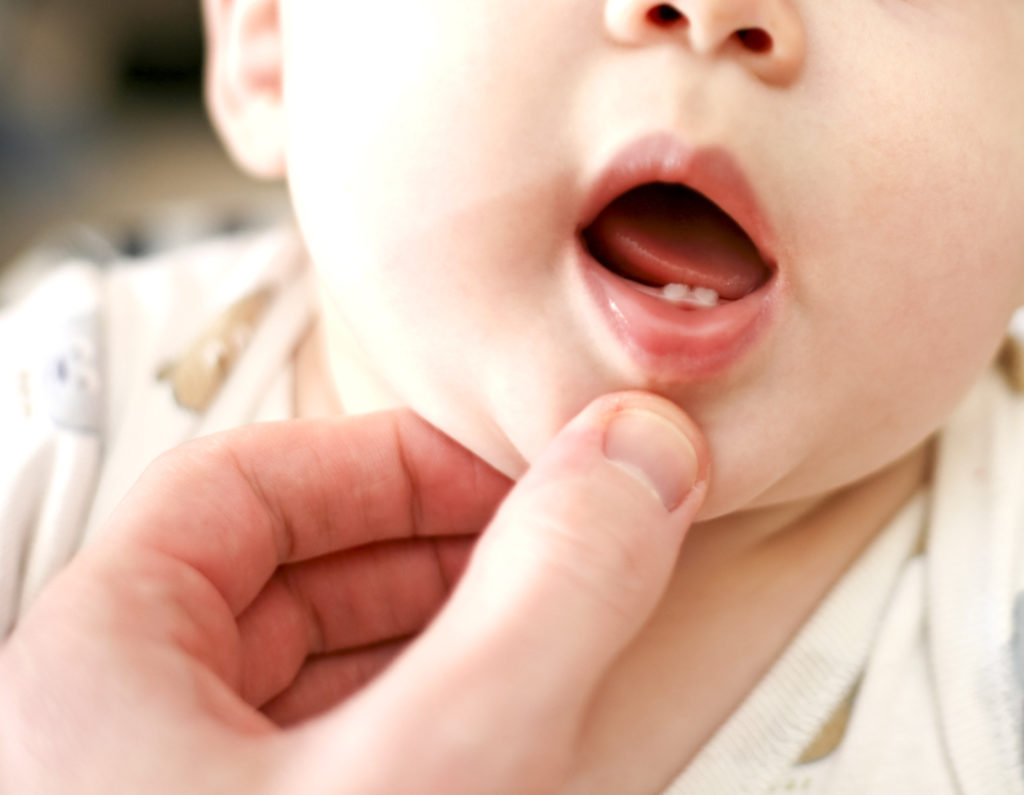There's no age to start taking care of your dental hygiene. In fact, babies' oral health is essential from birth. Reflexes are essential, even if the teeth have not yet erupted or if they are primary teeth. This helps prevent future cavities and infections in the mouth, but it's not all! To clarify matters, the Helvident team answers 10 questions that parents generally ask.
How to clean baby's mouth before the first teeth appear?
For the first few months, we recommend gently cleaning your baby's gums. Use a clean, damp cloth or compress. This operation should be repeated morning and evening, or ideally, after each feed.
At what age do the first teeth appear?
At birth, newborn babies already have 20 teeth hidden beneath their gums. Some babies are born with one or two teeth. However, on average, they start to erupt between 6 months and 1 year. Visit teething is most often accompanied by irritability, loss of appetite and/or sleep. By the age of 3, they are usually all out.
How do I brush a baby's teeth?
You may be surprised to learn that cavities can form as soon as the first baby tooth emerges. So, when you notice it, it's time to brush. Buy a toothbrush and toothpaste suitable for babies. When your child can't yet sit up, the easiest way is to lay him on his back. Brush vertically, from the gums to the tips of the teeth. When the child can stand on his own, you can stand together in front of a mirror to start teaching him the gestures in a playful way. As soon as you notice that two teeth are touching, you should also clean the interdental spaces. You can do this before or after brushing your baby's teeth, using baby-friendly accessories. Don't hesitate to ask your dental hygienist in Lausanne, Fribourg or Aigle.
How much toothpaste should I use for a baby?
Quantities are obviously much smaller than for an adult. To give you an idea, count the equivalent of a grain of rice for a baby under 3. From 3 to 6 years of age, count the equivalent of a pea. We recommend that you brush your child's teeth yourself until he or she is able to do so on their own.
Is it safe to give children fluoride-based products?
Fluorine is a mineral naturally present in water. One of its properties is its protective effect on tooth enamel. It makes it more resistant to bacterial attack, thus reducing the risk of developing tooth decay. Children's toothpastes contain an age-appropriate dose. We invite you to discuss this with your pediatrician or dentist in Fribourg, for example.
How can we prevent oral health problems in babies?
The bacteria responsible for tooth decay can be transmitted through saliva. Certain reflexes in the baby's immediate environment can be harmful. For example, putting a pacifier or bottle in your mouth before giving it to your baby. The same applies to the spoon used at mealtimes. Try to respect the private use of all dedicated accessories and utensils to promote good oral hygiene in babies. In infants, the tooth decay is known as "baby bottle tooth decay". It most often affects the upper incisors, but this is not an absolute rule. The main cause? Repeated, prolonged exposure of baby's teeth to milk or other liquids containing sugar. So avoid letting your child fall asleep on his or her bottle.
When to take your child to the dentist for the first time?
Baby care professionals recommend that parents take their child to the dentist no later than one year of age. The best time to visit is just after the first baby tooth appears. As we explained earlier, the first tooth means the risk of tooth decay. Thereafter, you should have a check-up at least once a year.
Don't hesitate to ask your doctor for more advice on babies' oral health. Finally, don't forget that you are your child's first role model. For example, if he sees you brushing your teeth after every meal, it can only help him adopt the right reflexes.

